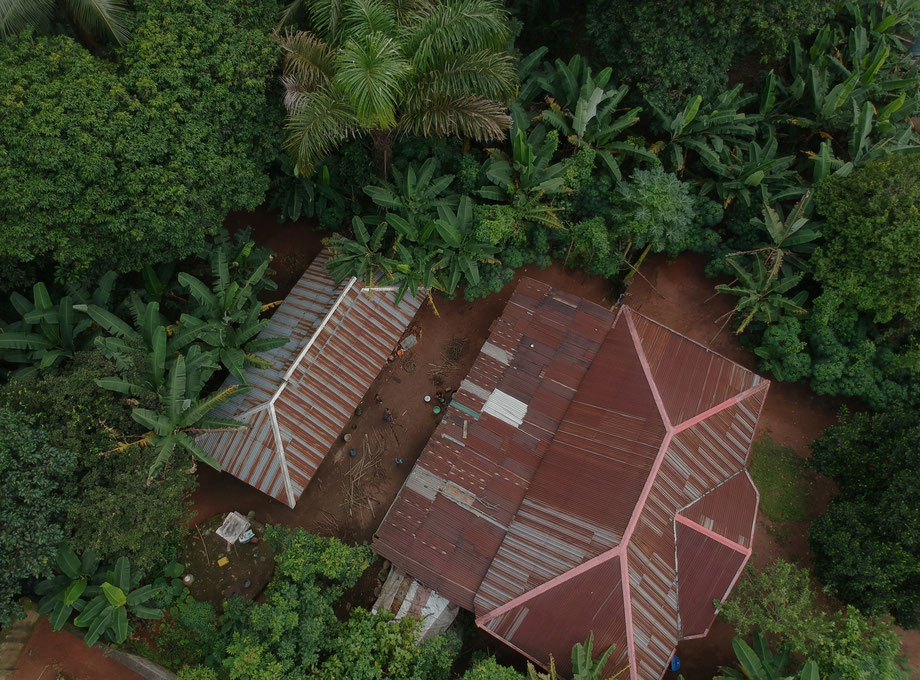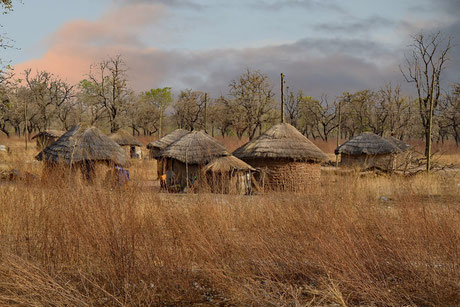In this new article, you'll learn more about the issues surrounding the African forest and its deforestation. Here, we look at the socio-economic causes that
contribute to the logging of trees.
Previously : African Forest : challenges and hopes in the face of deforestation
Deforestation in Africa and its causes

Socio-economic factors
Coal trading and traditions

Local populations are highly impacted by forestry activities, both as authors and victims. The spread of fires is another reason behind deforestation, further decimating the forest stock.
Bush fires occur for two main reasons.
The first is of an economic nature, as the wood is used to produce charcoal, which is either used by the local population or subsequently sold. In some cases, particularly in Cameroon, these bushfires can be regulated by national institutions, although this is rarely enforced.
As a result of these bush fires, the populations living in these forests are forced to leave their homes and take refuge in the towns.
The coal export sector in Cameroon accounted for nearly 12 billion CFA franc in 2016, or 70% of total sales. According to experts, this figure is set to rise.
The second reason, slash-and-burn cultivation, is an ancient technique used by local populations before harvesting. Though, in theory, it's not this technique that's problematic (it's quite rare in Cameroon, and more widespread in West Africa).
It is the combination of deforestation and these fires that leads to a major spread of wildfire.
It should also be noted that this dependence on forest products is closely correlated with the high poverty rate in these regions. The main source of income for these populations
is the wood trade.
Demographic pressure is an aggravating factor, driving the search for financial resources in the export of natural wood resources. However, this is only a short-term solution, as climate change and finite resources also impact economic growth, requiring alternatives to be found.
Armed conflicts threatening the stability of forested areas

Another cause of deforestation is armed conflict. When conflict breaks out, it's not uncommon for armies to take over agricultural areas in order to survive
without external support. But rebels also occupy wooded areas to provide cover for their base camps, which means altering the environment.
Modern armed conflicts increasingly use drones as reconnaissance and attack tools. Dense woodlands are impassable to aerial tools, making them attractive to rebels.
Local populations are then driven out of their territory, reinforcing the exodus effect of deforestation.
But this is not the only problem linked to armed conflict when it comes to the state of the forest. Wood resources tend to fall into the hands of rebel groups, who use them to finance their fighting. They finance contracts with companies that are less costly (because they are not on the legal market) and therefore more attractive.
This parallel and illegal logging industry takes no account of the environmental issues involved in protecting Africa's forests. The forest is depleted, and when one area can no longer produce, another is exploited.
This is a situation documented by the international press. For example, in the Virunga National Park in the DRC, nearly 14% of the territory is illegally occupied by rebels for farming or trading coal, for which demand has exploded in the area in recent years. These revenues are used to finance the war, which not only has an ecological cost, but also a considerable human cost.
To sum up
Deforestation in Africa therefore has a direct economic and social impact on local communities.
Whether the activities are managed at national level, or orchestrated by illegal groups, they lead to the impoverishment of populations, via the loss of their food systems, but also to their marginalization and even to a phenomenon of forced rural exodus.
The ravages of the African forest not only have an ecological impact on the planet, they are also a humanitarian disaster.
Featured in our "Forests of Africa" series:
Article submitted by Flora, from the Run for Planet team
Find her online : linkedin.com
References :
- Info Congo. Bidima I.M., Malungu A. FR: “Cameroun : La production du charbon légal s’intensifie à l’Est” / ENG "Cameroon: Production of legal coal intensifies in the East". Published 2019, February 6. From infocongo.org
- Investir au Cameroun. FR: “Cameroun : bien qu’embryonnaire, le marché du charbon de bois pèse 17 milliards de FCfa, selon le ministère des Forêts” / ENG: "Cameroon: although embryonic, the charcoal market is worth FCFA 17 billion, according to the Ministry of Forests." Published 2016, October 18. From investiraucameroun.com
- Métropolitiques. Jourdam-Boutin M. FR: “Vers une formalisation de la promotion immobilière au Cameroun ?” / ENG: "Towards the formalization of real estate development in Cameroon?". Published 2023, March 23. From metropolitiques.eu
- Le Monde. Pierret C. FR: “Le parc des Virunga à nouveau au cœur des conflits de l’est de la RDC” / ENG: "Virunga Park once again at the heart of conflicts in eastern DRC". Published 2022, November 29. From lemonde.fr




Écrire commentaire